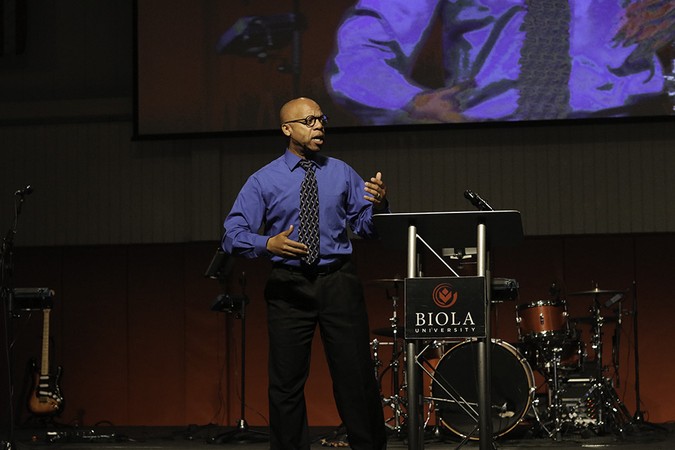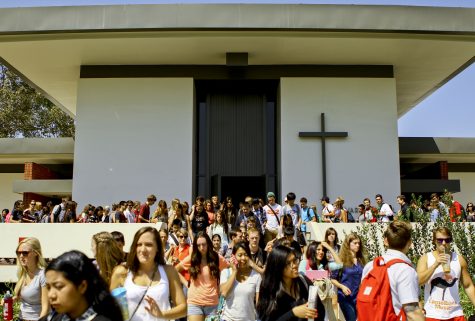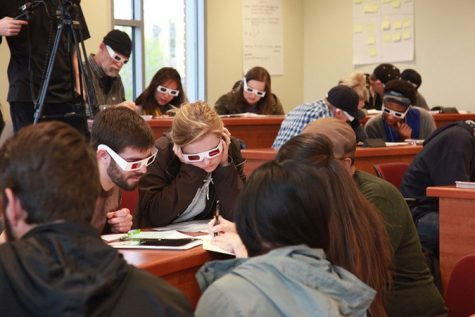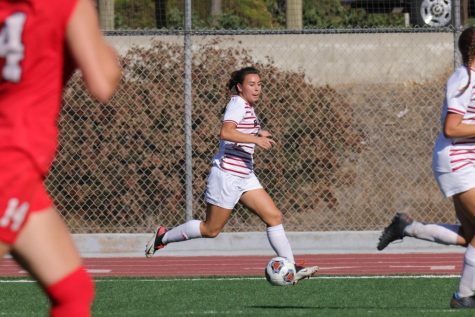Professor talks writing process
Leon Harris shares subject of his new book.
April 18, 2018
Writing takes time whether it is a term paper, doctoral thesis or book. For assistant professor of biblical and theological studies Leon Harris, the process took about four and half years to write his book, “The Holy Spirit as Communion.” This work, which shares a name with his doctoral thesis, featured in the Spring 2018 Faculty Book Showcase last Wednesday.
Q: WOULD YOU MIND TELLING ME A LITTLE BIT MORE ABOUT YOUR BOOK?
A: “Basically what I’m doing is I’m taking two theologians. One is a British reformed theologian and the other one is a Pentecostal theologian, North American. And so, what I’m doing is I’m comparing their work, because I’m using them as conversation partners to determine the role of the Holy Spirit within the Trinity—how that has [its] very own topics like creation, salvation, eschatology, the Church.”
“So I wanted to investigate if the Holy Spirit is a divine person equal with the Father and the Son, what does that look like and what does that mean for us as Christians? The Holy Spirit can’t just be a force. It can’t just be a way to talk about God’s activity as if the Holy Spirit’s not a distinct person with the Trinity, the triune God.”
Q: WHY DID YOU CHOOSE THIS TOPIC?
A: “The reason for the topic is two questions I had going in: What does the Trinity have to do with our salvation? Because the Trinity sometimes is taught as if it’s just something we should believe, and it really doesn’t have any bearing on our reality. It doesn’t have any bearing on our salvation, doesn’t really have any bearing on our church life. We just read the doctrine of the Trinity as this is how we know who is a true Christian, and that just didn’t sit right with me. It seemed like there should be more.”
“If this is God, [and] God is who he is, and who he has revealed himself to be, then it should have some impact on our theology, should have some impact on the way we live out our lives, should have some impact on how we view reality.”
“So, that was the first question and the reason the Holy Spirit is I saw quickly in my theological training. We do a really good job when we talk about our relationship between the Son and the Father—the Father sent the Son to redeem us, the Son doing the Father’s will, and so we see this wonderful dynamic, this wonderful relationship between the Father and the Son, and I thought so where’s the Holy Spirit. This is good, but what, the Holy Spirit doesn’t show until Acts and a couple times in the Old Testament. It just didn’t seem right, and so, that was the question I wanted to ask.”
“If the triune God, so the doctrine of the Trinity, how does that play out over our understanding of the world, understanding of our relationships, but then after that, what is the role of the Holy Spirit? Where does the Holy Spirit play out? So it’s two questions, the Trinity and the Holy Spirit within the redemption plan that we see in the Gospels.”
Q: WHAT WAS YOUR PROCESS OF WRITING THIS BOOK?
A: “Painful, that’s what. Let me tell you that, it was painful. I don’t think I have a unique style but my process of writing is I really like to understand the mind of the author that I’m studying. What I mean by that is, so I read his material or her material, and while I’m reading their material if they mention another concept or if they refer to another author that they are using themselves, I will stop and read that author, because I want to get as much I can into the mind of this author I’m reading…”
“Then after that, I just kept writing and writing, and then would go back and delete and delete, rewrite, rewrite, constantly think about it, and during this process of writing, editing, deleting, deleting, I started over many times after writing 10, 20,000 words.”
Q: HOW WAS THE PROCESS OF GETTING IT PUBLISHED?
A: “One publisher said yes, we’ll take it on, and the publisher that I selected, who selected me, they have a little different model for publishing, but it’s similar to other ones. So I had to go back, re-read my book again, re-edit the manuscript, which is a dissertation basically, formulate a few things. It wasn’t much. I was fortunate. They told me it was pretty good the way it was, but I did have to go back and change some things. I did have to go back and realize… I didn’t have to start from scratch but I did have to do a lot of editing, a lot of re-wording, a lot of wordsmith, and that took time and a lot of talking with the editor.”
“They had formatting standards, so I had to change some formats that was okay for the Ph.D., but it didn’t meet their particular standards. I had to go back and, thank God, I did it in Word, so I was able to do a lot of searching and replace. So that took about another four, five months, just to get it ready for publish.”








